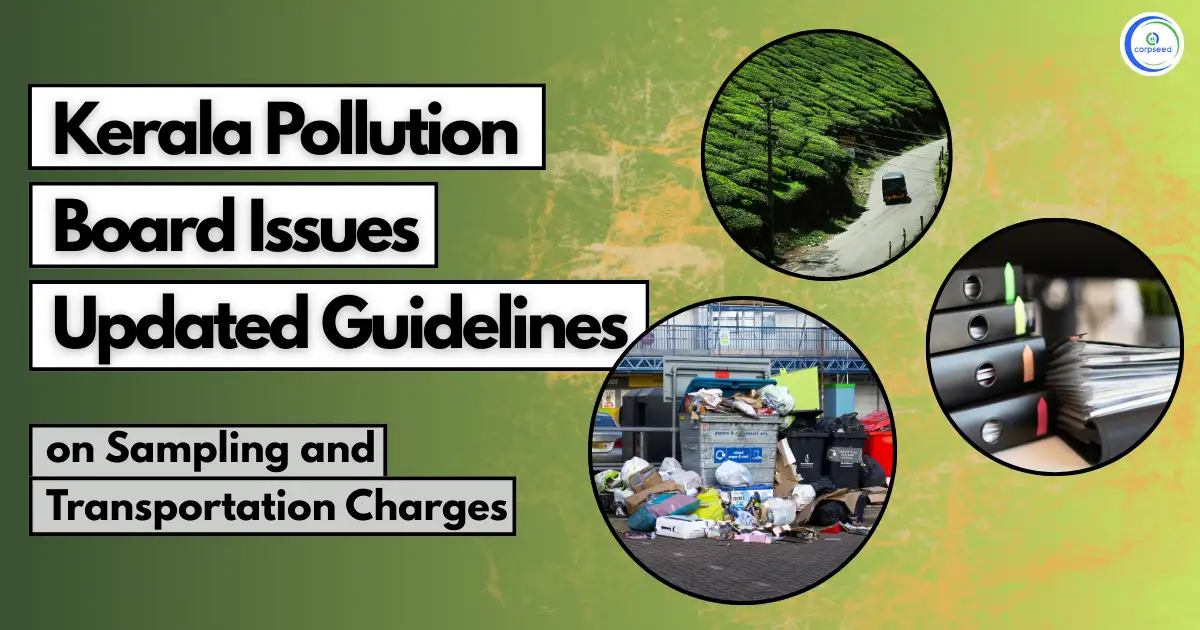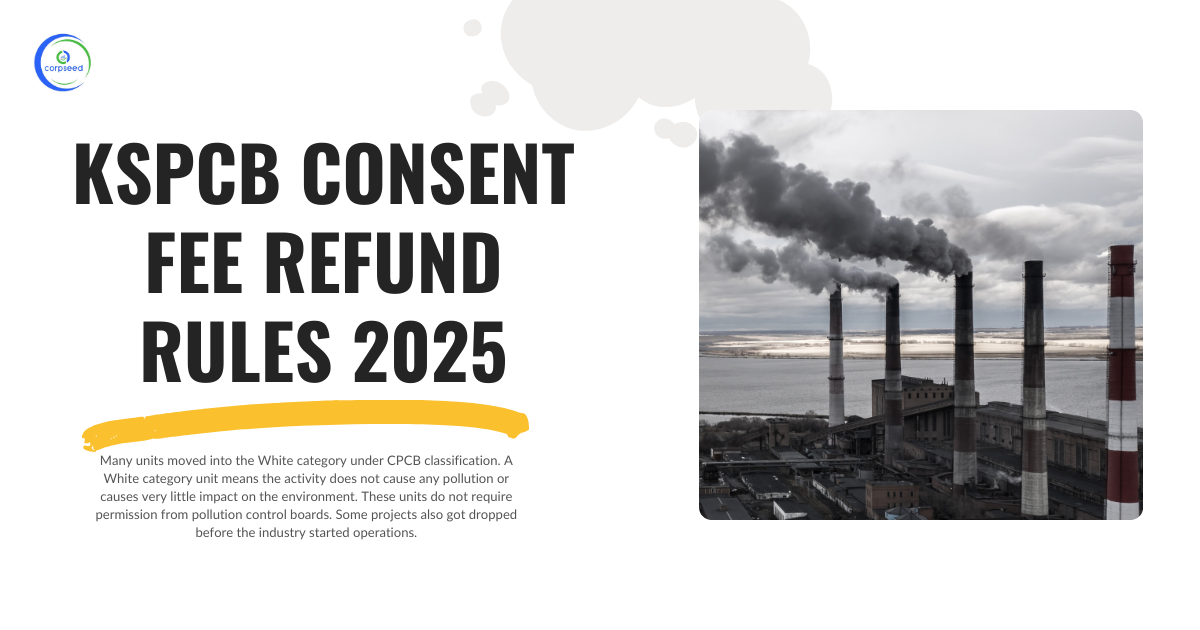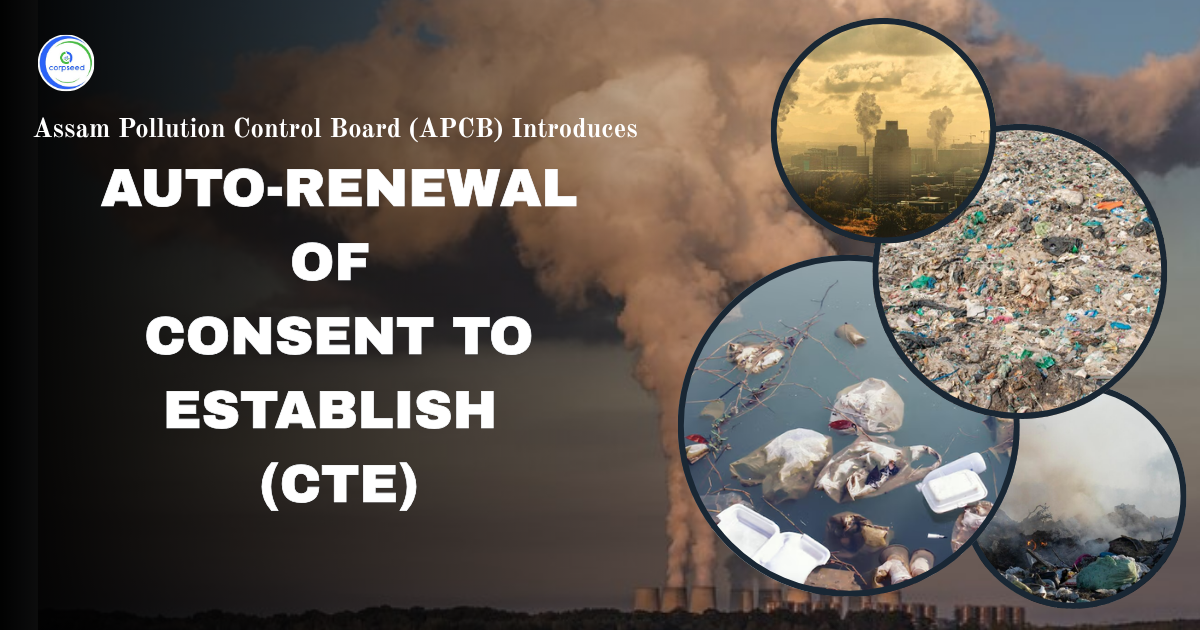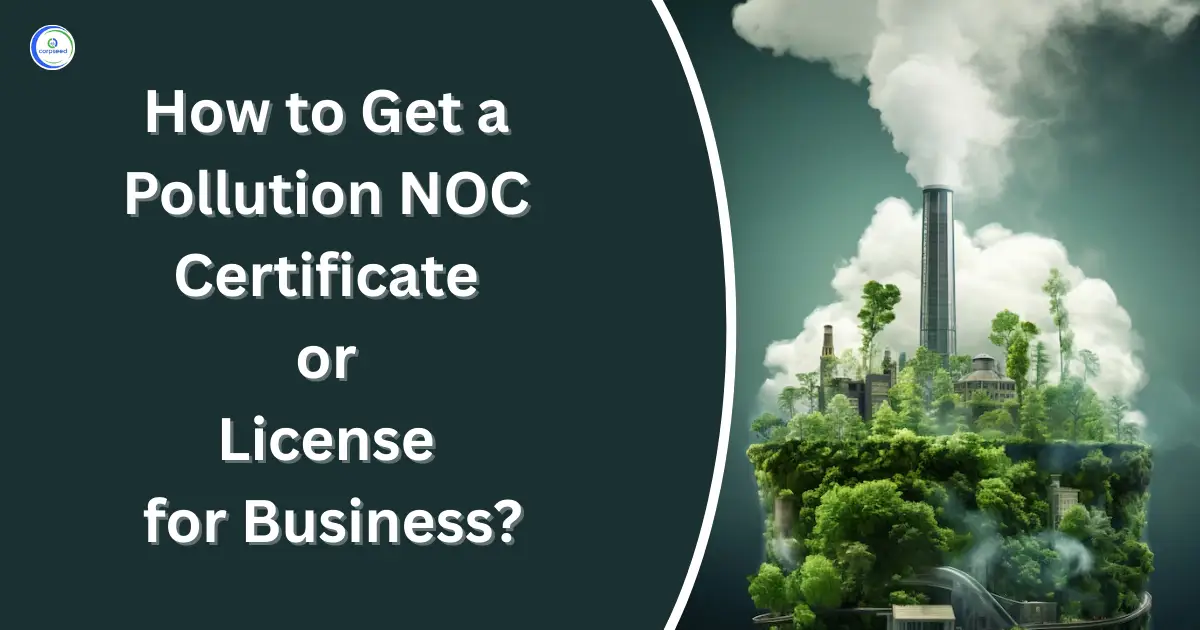The Uttar Pradesh Pollution Control Board (UPPCB) plays an important role in ensuring environmental compliance across industries in the state. Inspections are conducted under the provisions of environmental legislation such as the Water (Prevention and Control of Pollution) Act, 1974, the Air (Prevention and Control of Pollution) Act, 1981, and the Environment Protection Act, 1986. The inspection procedure ensures that industries follow pollution control measures, maintain proper records, and comply with the conditions laid down in their consents and authorizations.
UPPCB classifies industries into Red, Orange, and Green categories based on the level of pollution they generate. The inspection procedures differ slightly for each category, but the overall goal remains the same, ensuring strict compliance with environmental regulations, prevention of pollution, and sustainable industrial operations.
Table of Contents
--------------Blog Contact Form-------------
Importance of Inspection by UPPCB
Importance of inspection done by UPPCB (Uttar Pradesh Pollution Control Board)
- Ensures compliance with environmental laws and regulations.
- Monitors the performance of pollution control devices installed by industries.
- Verifies proper treatment, storage, and disposal of wastewater, emissions, and hazardous waste.
- Prevents unauthorized disposal of industrial waste into land, water bodies, or air.
- Strengthens environmental governance in line with CPCB, SPCB, and MoEF&CC directives.
- Promotes sustainable industrial development without compromising environmental safety.
Procedure for Carrying Out Inspection (Industry Category Wise) by the Uttar Pradesh Pollution Control Board (UPPCB)
A. Red Category
The inspection team usually comprises of one or more officers, as the case may be, to carry out the inspections under the provisions of vivid environmental legislation.
- The Inspection Team serves a notice to the occupier or the Authorized/ Responsible person in case of samples are to be collected.
- The Team shall verify the following, in the presence of the occupier or Authorized / Responsible person: -
- Operation of plants(s), products(s) being manufactured, raw material being used with quantity.
- Status of operation of Environment Management System comprising of generation and control measures taken for Water /Air/ Solid Wastes/ Hazardous Wastes and their storage and disposal.
- Maintenance of records in the form of Logbooks etc., for Pollution Control Devices, Energy Meter Readings, Raw Consumption of Water/ Fuel and others as required by the Inspection Team.
- Number of Outlets provided or disposal of Waste Water/Liquid Waste and Compliance thereof.
- Number of Emission Stacks /Vents/ Boilers /Furnaces with their capacity, etc.
- Area within or outside the premises to check any unauthorized disposal or general housekeeping.
- The Compliance of the condition of previously granted Consents/ Authorization under Environmental Laws.
- Online Continuous Monitoring System Details (If Applicable).
- CCTV Cameras (If Applicable).
- The Team shall also collect sample(s) of Waste Water, Emission(s), and Hazardous Waste(s), as required by the Team.
- The Inspection Team while conducting Inspection serves the notice to take the samples of effluent or emissions, giving brief remarks on the notice, regarding shortcomings found, if any.
- Checklist of Documents that may be verified by the Inspection Team during its visit are as follows:
- Production Details
- Raw Materials Details.
- Water/Fuel Consumption Data.
- Solid Waste/ Hazardous Waste Generation and Disposal Records and Logbooks.
- Electricity readings and logbooks regarding consumption of electricity or running the Pollution Control Devices.
- Compliance of any other direction given by SPCB/ CPCB/ MoEF & CC or any other court of Law.
B. Orange Category
The inspection team usually comprises of one or more officers, as the case may be, to carry out the inspections under the provisions of vivid environmental legislation.
- The Inspection Team serves a notice to the occupier or the Authorized/ Responsible person in case of samples to be collected.
- The Team shall verify the following, in the presence of the occupier or Authorized / Responsible person: -
- Operation of plants(s), products(s) being manufactured, raw material being used with quantity.
- Status of operation of Environment Management System comprising of generation and control measures taken for Water /Air/ Solid Wastes/ Hazardous Wastes and their storage and disposal.
- Maintenance of records in the form of Logbooks etc., for Pollution Control Devices, Energy Meter Readings, Raw Consumption of Water/ Fuel and others as required by the Inspection Team.
- Number of Outlets provided or disposal of Waste Water/Liquid Waste and Compliance thereof.
- Number of Emission Stacks /Vents/ Boilers /Furnaces with their capacity, etc.
- Area within or outside the premises to check any unauthorized disposal or general housekeeping.
- The Compliance of the condition of previously granted Consents/ Authorization under Environmental Laws.
- The Team shall also collect sample(s) of Waste Water, Emission(s), and Hazardous Waste(s), as required by the Team.
- The Inspection Team while conducting Inspection serves the notice to take the samples of effluent or emissions, giving brief remarks on the notice, regarding shortcomings found, if any.
- Checklist of Documents that may be verified by the Inspection Team during its visit are as follows:
- Production Details
- Raw Materials Details.
- Water/Fuel Consumption Data.
- Solid Waste/ Hazardous Waste Generation and Disposal Records and Logbooks.
- Electricity readings and logbooks regarding consumption of electricity or running the Pollution Control Devices.
- Compliance of any other direction given by SPCB/ CPCB/ MoEF & CC or any other court of Law.
C. Green Category
The inspection team usually comprises of one or more officers, as the case may be, to carry out the inspections under the provisions of vivid environmental legislation.
- The Inspection Team serves a notice to the occupier or the Authorized/ Responsible person in case of samples to be collected.
- The Team shall verify the following, in the presence of the occupier or Authorized Responsible person: -
- Operation of plants(s), products(s) being manufactured, raw material being used with quantity.
- Status of operation of Environment Management System comprising of generation and control measures taken for Water /Air/ Solid Wastes/ Hazardous Wastes and their storage and disposal.
- Maintenance of records in the form of Logbooks etc., for Pollution Control Devices, Energy Meter Readings, Raw Consumption of Water/ Fuel and others as required by the Inspection Team.
- Number of Outlets provided or disposal of Waste Water/Liquid Waste and Compliance thereof.
- Number of Emission Stacks /Vents/ Boilers /Furnaces with their capacity, etc.
- Area within or outside the premises to check any unauthorized disposal or general housekeeping.
- The Compliance of the condition of previously granted Consents/ Authorization under Environmental Laws.
- The Team shall also collect sample(s) of Waste Water, Emission(s), and Hazardous Waste(s), as required by the Team.
- The Inspection Team while conducting Inspection serves the notice to take the samples of effluent or emissions, giving brief remarks on the notice, regarding shortcomings found, if any.
- Checklist of Documents that may be verified by the Inspection Team during its visit are as follows:
- Production Details
- Raw Materials Details.
- Water/Fuel Consumption Data.
- Solid Waste/ Hazardous Waste Generation and Disposal Records and Logbooks.
- Electricity readings and logbooks regarding consumption of electricity or running the Pollution Control Devices.
- Compliance of any other direction given by SPCB/ CPCB/ MoEF & CC or any other court of Law.
Common Aspects across all Categories
Environmental Compliance Verification: Ensures adherence to standards laid down by CPCB, SPCB, and MoEF&CC.
- Sample Collection: Essential to check whether pollution levels are within prescribed limits.
- Record Maintenance: Proper logbooks of waste management, fuel consumption, and energy use must be maintained.
- Consent Compliance: Verification of consent conditions under Water Act, Air Act, and Hazardous Waste Management Rules.
- Reporting: Any shortcomings or violations are reported and corrective action is suggested.
Role of CPCB, SPCB, and MoEF&CC
The role of all the boards and ministry are:
- CPCB (Central Pollution Control Board): Issues national-level guidelines for environmental standards.
- SPCB (State Pollution Control Board): Implements CPCB guidelines at the state level, monitors industries, and enforces compliance.
- MoEF&CC (Ministry of Environment, Forest and Climate Change): Provides policy framework and issues clearances for large-scale projects.
UPPCB aligns its inspection process with directives from these authorities to ensure robust environmental governance.
Conclusion
The inspection procedure by the Uttar Pradesh Pollution Control Board is designed to ensure that industries operate within the framework of environmental laws, control their emissions and effluents, and adopt sustainable waste management practices. By categorizing industries into Red, Orange, and Green, UPPCB ensures that inspection intensity matches the pollution potential of the industry. These inspections not only protect public health and the environment but also encourage industries to adopt better technology and improve their environmental performance. Compliance with UPPCB inspection procedures is not just a legal requirement but also a vital step toward responsible industrial growth in Uttar Pradesh.
This portion of the site is for informational purposes only. The content is not legal advice. The statements and opinions are the expression of author, not corpseed, and have not been evaluated by corpseed for accuracy, completeness, or changes in the law.
BOOK A FREE CONSULTATION
Get help from an experienced legal adviser. Schedule your consultation at a time that works for you and it's absolutely FREE.






.webp)

.webp)
